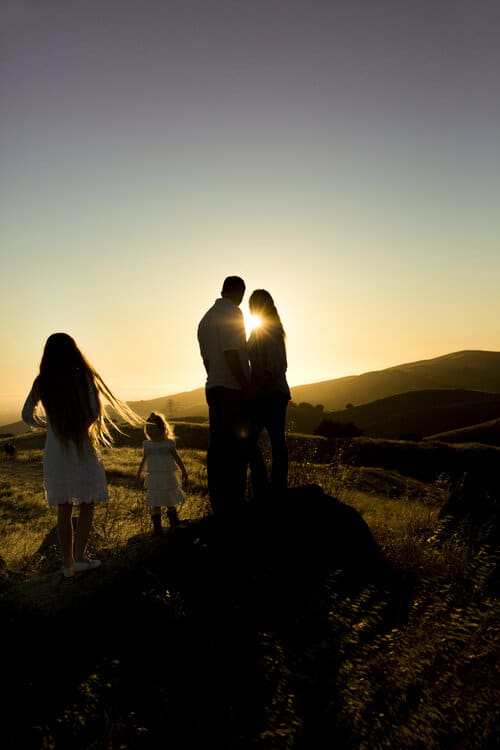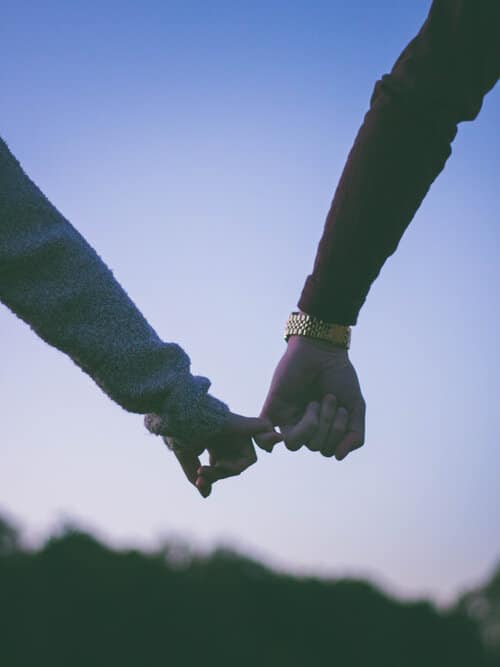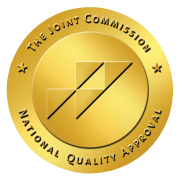There is certainly a lot of conversation surrounding the global crisis of COVID-19 right now. In fact, I’m not sure there are many conversations that go longer than a couple of minutes without eventually landing on the subject. So at the risk of being yet another voice amid the white noise, I would like to share some observations on what is taking place from the perspective of a mental health professional. I should probably enter the disclaimer now that the point of this post is to encourage a potential different way of thinking, and if helpful, some practical steps to take for improving wellbeing through this time of crisis. I do not intend this to be any sort of counterpoint or suggestion for how we ought to be responding to the crisis. Ok, with that disclaimer out of the way, let’s go down the rabbit hole…or perhaps get out of it.
Have you ever experienced a big emotional outburst, but you couldn’t make sense of where it came from? Say you go to get your keys in the morning and they are not where you thought you left them, but before you can even check a second location you are already entering into a state of agitation, or perhaps (if you’re like me) a burning rage that surges through every vein of your body. We all know what eventually happens…you find your keys, maybe feel a little silly about the outburst and go about your day. Rarely though do we stop to think about what just took place. From the lense of psychodynamic theory, what likely just occurred was the result of a defense mechanism, such as “displacement of emotion” or “isolation of affect.” Both of these common defense mechanisms are what happens when we are unconsciously attempting to protect ourselves from difficult emotions. One does not need a fancy degree to know that the angry outburst is not really about the lost keys. It is more likely that the angry outburst is some culmination of difficult emotions that have been compartmentalized over weeks. So why are we talking about keys in the midst of a global pandemic? As we continue to bear witness to what is taking place around us and within our own lives, I continue to grow curious. I am curious if on some macro level, the entire world has lost its keys.

I acknowledge that comparing a crisis in which people’s lives are at stake to an innocuous experience of losing keys can come across tonedeaf to say the least. Nonetheless I encourage you to entertain a different way of thinking for a moment in time, if only to experience a reprieve from being in a perpetual state of alertness. As therapists we are trained to help individuals alleviate symptoms associated with mental illness utilizing an array of interventions. An example of such an intervention for treating someone with high anxiety is to assist them in some form of reality checking their fears. Cognitive Behavioral Therapy calls this “Examining the Evidence,” while Dialectical Behavioral Therapy calls it “Just the Facts.” Essentially, the goal is to identify the size of our fears, measure them against the objective reality of risks, and if they are vastly unbalanced the anxiety can begin to subside. So my question to everyone at this moment in time is, are you reality checking your current fears? If your automatic answer is, “Of course!” I challenge you to try one of the above mentioned interventions yourself and measure your fear against the actual risks based on facts. You may find that you run into a hurdle in this process pretty quickly…a shortage of facts. The reported cases of COVID-19, and more importantly the reported death rate is changing rapidly. With a shortage of accurate tests and the novelty of the situation, numbers being reported vaguely resemble facts. With only a very basic understanding of statistics and the scientific method it is easy to identify that if the available tests are only being used for patients with more pronounced symptoms, the numbers being reported to the public are at risk of being dramatically skewed without the benefit of a random sample, and likely in a more scary direction. So, with a lack of facts how are we supposed to deploy reality checking? Most of us are leaning on the professional opinions and using their reports for our objective reality. Now, I am not advocating that taking the advice of professionals is a fruitless endeavor. I am more interested in why we, on potentially the largest scale in history, are completely buying in to the advice of the professionals in this specific crisis. Lives are at stake indeed. At the same time lives are at stake every day we wake up and go to work. How many professional opinions are in existence right now, in a multitude of different fields, that warn us of the risks we are exposing ourselves to on a regular basis? We have all heard before how dangerous smoking, vaping, eating processed food, texting while driving, over medicating or under medicating, not exercising, looking at screens too much, over eating, drinking alcohol, working too much and countless other behaviors could pose risks to our health. If you have not yet looked at the CDC’s report of the 10 leading causes of death I encourage you to do so. And when you do please ask yourself this important question: Am I as aware of what the professionals are saying about the seven leading causes of death that rank higher than influenza/pneumonia as I am about what the professionals are saying about COVID-19 right now? After you have answered this first question, I would suggest the following two: Am I as afraid of these risks to my life as I am afraid of this virus? And finally, what I believe to be the most important question: Am I changing my behavior to avoid these risks in the same way I am changing my behavior to avoid getting this virus? These questions are all tools for reality checking. My guess is that most of us would have to answer no to the above questions. I would also guess that the reason we are not responding to these very real risks in the same way we are responding to this virus is because of the keys! If we are being honest, we all know that we should probably not eat that second bowl of ice cream, we should not drive past the speed limit, we should not work so much, we should take better care of our finances and we should definitely not use that detergent that the professionals say can lead to cancer. But we do! We rationalize, deny, compartmentalize, repress, minimize and engage in any psychological defense we can to ignore the risks we are exposing ourselves to on a daily basis. Rarely do we consciously acknowledge what it is we are scared of, let alone talk about it with others…until there is a target for all of that fear to funnel into.
When fear of this magnitude is unfolding across the population, dangerous things can happen. When we begin to act out of fear, we are not typically acting from the parts of our brain that are more adept at critical thinking. When in a state of fear we are acting more out of instinct which is saturated in negativity bias. The go-to example for explaining negativity bias is the cave man out hunting who hears rustling in the bushes and responds as though it is a dangerous predator. Even though the cave man knows the probability of it being an actual threat versus a rodent or bird is highly unlikely, in that moment his instinctual brain assumes first the greatest threat so that he can protect himself. Sounds simple enough. And sounds like great survival skills. The catch is what happens when he is standing next to a cliff? His negativity bias that identifies the rustling in the bush as the greatest threat due to a very small chance it is a predator dictates his behavior of jumping back..and off the cliff. Critical thinking, in the place of negativity bias would have been able to acknowledge and compare the risks of staying still and taking a small chance at danger, versus jumping back and facing certain danger. I am sure it is not difficult to make comparisons to the current responses to fear unfolding at both the individual and government level. Just to be clear, I am not suggesting we are jumping off the cliff in our decision to shelter in place and shut down the economy. What I am suggesting is that it would be in our best interest to find the balance between critical thinking and our negativity bias so that we can avoid both the potential predator and falling off the cliff.
It is important to acknowledge the individuals who are not acting out of fear for themselves, but are making these dramatic changes in behavior in an effort to slow the spread of the virus with the hope to save lives. I cannot emphasize enough the beauty and breath of fresh air these acts of kindness have been. At the same time I cannot help but wonder what could happen if the same level of commitment and sacrifice that is being carried out in this concentrated, finite time were spread out over a lifetime. A lifetime of small adjustments in behavior to alleviate the suffering of someone else. Much like how we compartmentalize our fears, we have a tendency to compartmentalize the feelings that arise when we compromise our values. There are plenty of professional voices speaking to the consequences that our seemingly subtle actions have on others. Our hearts hurt for the dedicated medical professionals and the vulnerable of our population who are most impacted by this crisis, and we are making huge behavioral changes in the hope that it can reduce their suffering. Again, this is a beautiful response and we live and act according to our values in this. Do we do the same for the child living halfway across the globe who is being exploited to make affordable clothing or electronics that make our lives a little more convenient? I know that I do not. I buy my inexpensive clothing and use my smartphone rarely thinking of how my actions affect them. I rationalize, deny, compartmentalize, repress, minimize and engage in any psychological defense I can to ignore the fact that I am not living up to my values. I suspect that I am not alone in this, and I suspect that a similar funneling effect is taking place with yet another difficult emotion.
Whether it is fear or guilt, there is a good chance that what is taking place today is in some way related to a massive build up of emotional plaque in our collective unconsciousness. My fear is that when the dust has settled, a great opportunity for learning will be lost. It will be lost in the attention and energy that will be directed toward pandemic response and preparedness (no doubt important) instead of being directed toward how we take care of our physical and mental health on a daily basis. How will we care for our bodies in a way that will mitigate risks for having compromised immune systems that make us more susceptible to viruses? How will we take care of our mental health so that difficult emotions do not become so scary that we bury them into our unconsciousness only to come out later in potentially harmful ways? How do we engage in small acts of kindness on a regular basis that are in alignment with our values? I am certain there will be many lessons to learn from this crisis. Many will question if we did more damage in our response than the virus ever could have caused. And many will say we did a great job in saving lives. Many will just be glad it is over. I hope that many lives are saved. And I hope millions more can be saved if we apply just a small fraction of the sacrifices and behavioral changes we have made in the past weeks to our everyday life moving forward.
If in reading this your curiosity has been peaked, I would encourage you to do just a few things:
- Reality check your current fears.
- Identify ways in which you can take better care of your mind and body on a daily basis.
- Identify small sacrifices you can make to improve the life of another.
- Allow yourself to experience difficult emotions knowing that there is not always something to be done with them.
Thank you so much for reading!
Adam Swanson, LMFT, Lido Wellness Center
Contact us now





